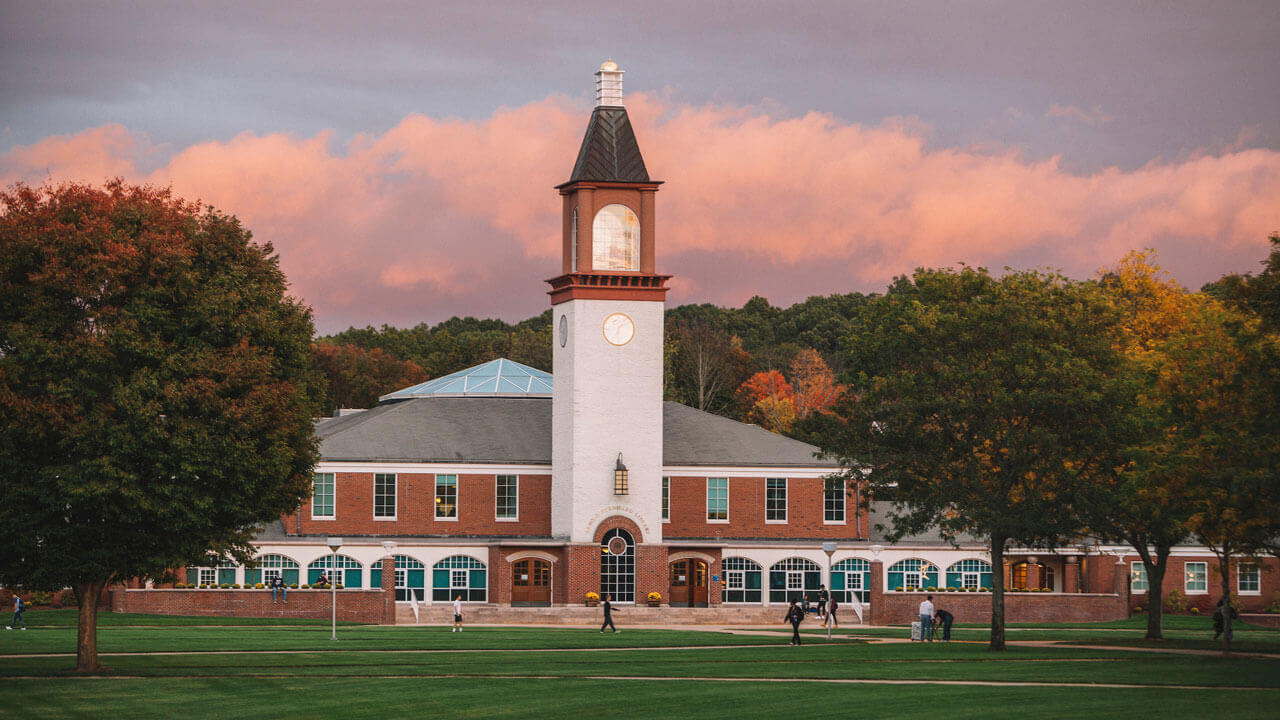
Quinnipiac’s Albert Schweitzer Institute names its 2020 Faculty Fellows
July 24, 2020

July 24, 2020

“We were fortunate this year to receive many fine proposals,” said Sean Duffy, executive director of the Albert Schweitzer Institute. “With current events centered on the challenges our world faces in ensuring public health and affording equal dignity to all people, we feel that the proposals selected – and Schweitzer’s legacy more broadly – could not be more timely.”
The five Schweitzer faculty fellows are:
Rahul Anand, associate professor of medical sciences, will develop on a curricular model for developing future physicians’ visionary leadership.
“I am extremely grateful to have the Schweitzer Institute’s support and recognition for our transformative leadership development program for medical students,” said Anand, a Farmington resident. “It is a testament to the work being done by our entire team and we look forward to furthering Schweitzer’s legacy and values via this collaboration.
“We are building a leadership curriculum that empowers medical students and develops them into authentic physician leaders who have a vision for a better future and can effectively collaborate with others to bring that vision to fruition.,” Anand continued. “In doing so, our program enables students to explore and imbibe Albert Schweitzer’s call to, ‘make one’s life one’s argument.’”
Xi Chen, associate professor of sociology, received the fellowship for her project, “Reverence for Life and Leaving No One Invisible – Mapping Economic Inequality in Developing Regions with VIIRs Nighttime Lights.”
“The Schweitzer Institute at Quinnipiac has a strong tradition of promoting human rights in practice, teaching and research,” said Chen, a Cheshire resident. “I am quite excited and honored to be named a Schweitzer fellow and am looking forward to my work with the institute.
“My research uses satellites to measure light output in small-scale geographic regions so as to measure unrelated activities,” Chen continued. “My work uses such imagery to measure GDP, infant mortality, population movement and other factors. In terms of human rights, this is important because for many developing regions of the world, we have little to no reliable data on many important measures of human rights issues.”
Angela Mattie, professor of management and professor of medical science, earned the fellowship for her project, “Reverence for Life: Educating Quinnipiac’s Students on How Policy Impacts Care for Older Americans.
"It is an honor to be named as a Schweitzer Faculty Fellow,” said Mattie, an East Haven resident. “I look forward to involving our students with my affiliation with this prestigious institute and dedicated colleagues.
“This fellowship will provide the opportunity to develop a Washington D..C immersion program for our students,” Mattie explained. “What happens in Congress has a significant impact on how we finance, staff, regulate and monitor quality in long-term care institutions and care of older Americans. It is important to expose our students to this connection and more importantly how to influence positive change.”
Thomas Pruzinsky, professor of psychology, received the fellowship for his project, “Inspiring Moral Elevation and Catalyzing Moral Action: Albert Schweitzer, MD and the Dalai Lama as Moral Exemplars.” Pruzinsky retired in July but will continue his project.
“My research focuses on how we experience inspiration by learning of great acts of compassion and by being exposed to teachings and teachers of the world’s great wisdom traditions,” said Pruzinsky, a Hamden resident.
Marcos Scauso, assistant professor of political science, was granted the fellowship for his project analyzing the epistemic assumptions underlying U.S. Foreign Policy and its actions in the world historically.
“Thanks to the Albert Schweitzer fellowship, I will be working with students to analyze how governments of the United States have historically promoted ideas that claim peace, tolerance and pluralism while also excluding ‘others.’ Scauso said. “This research might show us the roots of continuous and often-ignored tendencies of violence that our government sustains while also promoting peace.
The Schweitzer Fellowship provides up to $5,000 to support the work of each proposed project. The five new Fellows join the nearly 20 who have received funding since 2017.
Quinnipiac Today is your source for what's happening throughout #BobcatNation. Sign up for our weekly email newsletter to be among the first to know about news, events and members of our Bobcat family who are making a positive difference in our world.
Sign Up Now